The day Singapore came 'under attack' in Call of Duty
- Published
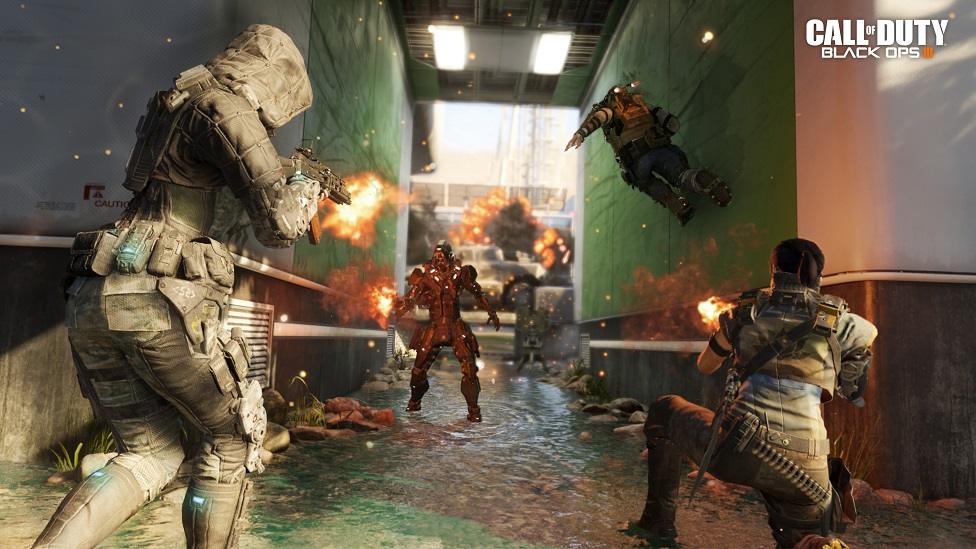
A "terror attack" has taken place in Singapore - all part of a controversial web campaign to launch the newest title from the popular Call of Duty video game franchise.
Set in Singapore during the year 2065, Call of Duty: Black Ops III begins with a mission where players must investigate the "mysterious disappearance" of a CIA station.
Ahead of its worldwide release on 6 November, US-based games maker Activision launched a series of tweets, external, setting up the opening scene for a fictional attack in Singapore.
While the tweets aimed to tease fans and also introduced new characters to the game, many social media users were unimpressed at the way things were playing out on Twitter, saying the scenario was in bad taste.


How Call of Duty's "attack on Singapore" unfolded:
1803: Fictional news network "Current Events Aggregate" sent out a breaking news tweet, external about "unconfirmed reports" of "an explosion" in Singapore's marina, exciting some gamers, external on Twitter while confusing others, external.
1814: "Emergency teams", external began to converge on the area.
1821: Another update followed, external, confirming that the explosion took place at the "Singapore Research Laboratories" facility.
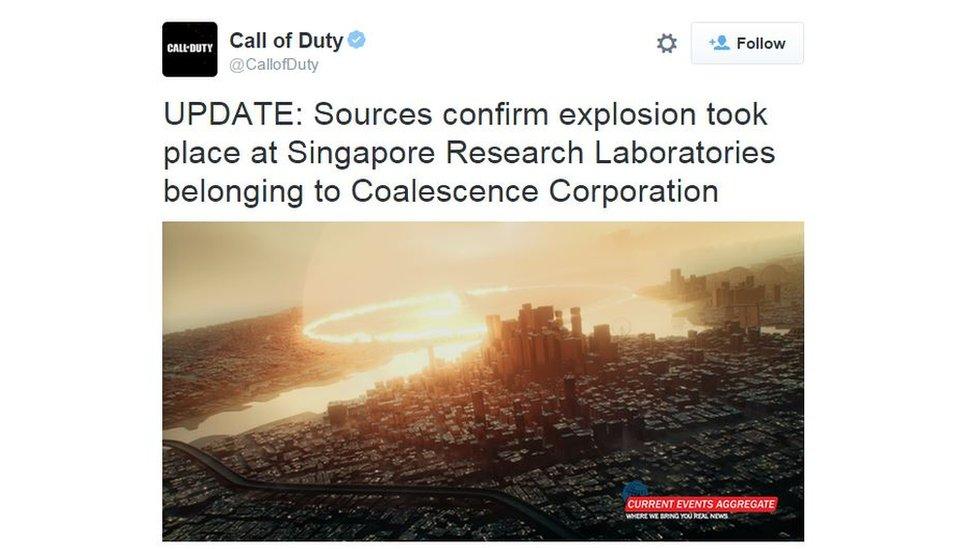
1852: Chaos ensued, causing major traffic jams, external around the city centre. This led to a "state of emergency", external and the Singapore authorities declaring martial law.
1944: Military drones, external and riot police, external descended upon Chinatown to control the crowds.
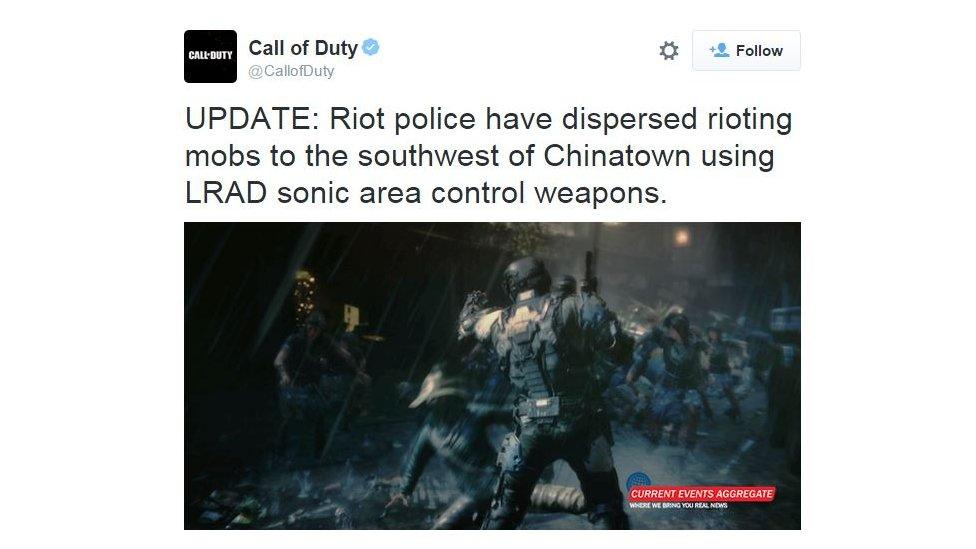
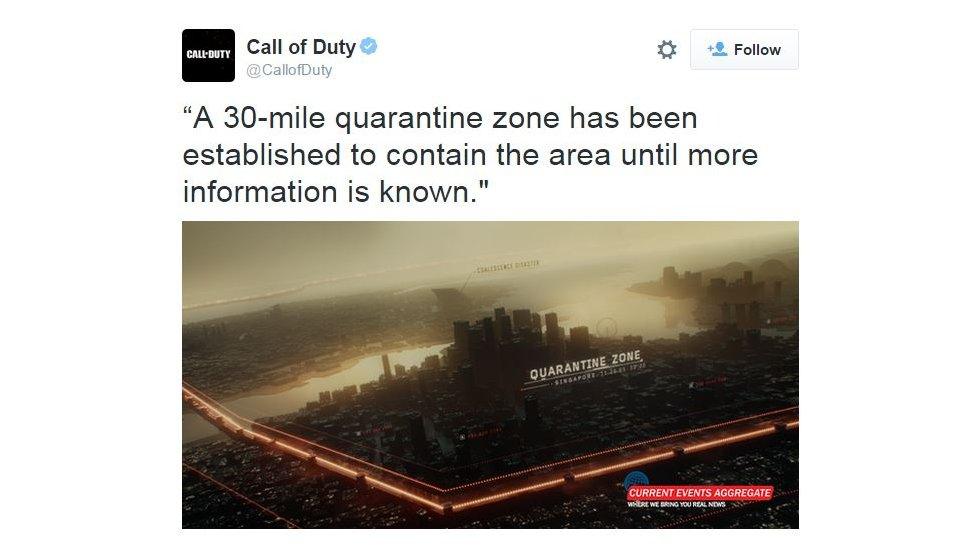
2005: The "Singapore army", external released a series of statements on the ground, establishing a "30-mile quarantine zone", external and calling for citizens to remain in their homes, external. "There have been no claims of responsibility from any terror organization," it added in a tweet, external.
2035: Fictional army commander James Chung, also declared that martial law would "remain in place" until the incident was "firmly understood".
2237: The series of live tweets ended with an official message, external: "This was a glimpse into the future fiction of #BlackOps3, external"
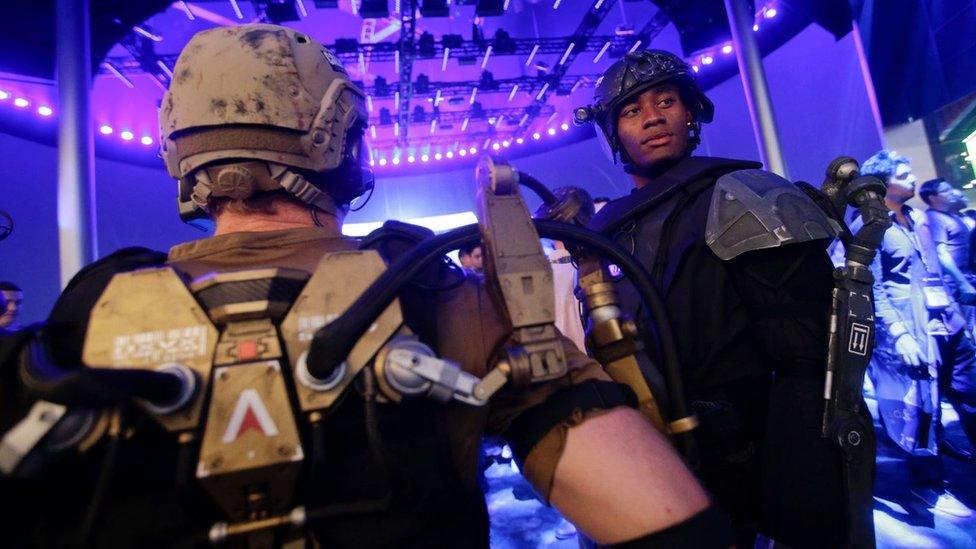
The popular shooter game has also attracted controversy since its early release
The popular first-person shooter franchise has attracted its fair share of controversy, external since its release in 2003.
Earlier editions of the game focused on World War Two events while newer titles have been set during more recent times.
Cuban authorities expressed unhappiness over a mission in one of the games, where players could attempt to overthrow and assassinate former leader Fidel Castro.
Another Call of Duty expansion saw players raiding a news agency in Doha, widely speculated to be the offices of Arabic TV network al-Jazeera.
'This was a bad idea'
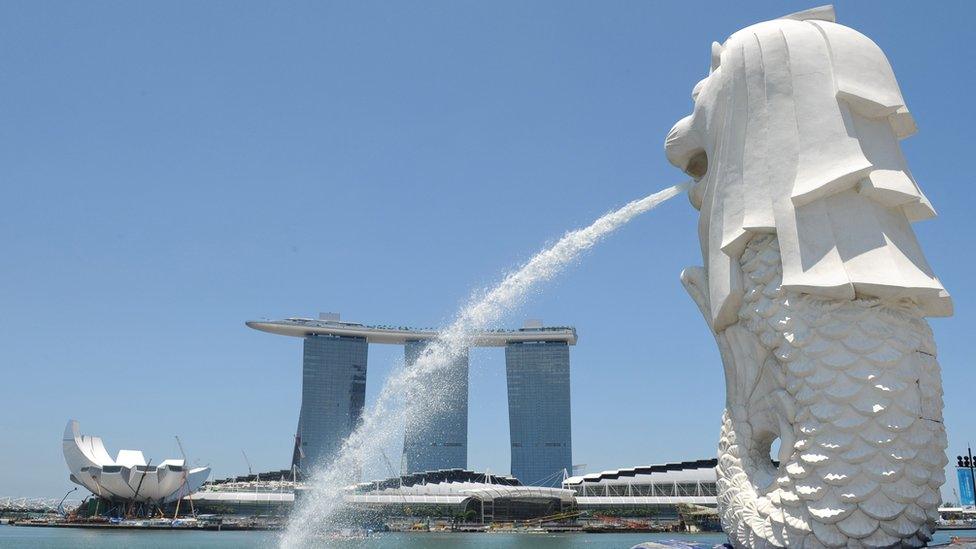
Some social media users on Twitter were not thrilled with Activision's digital campaign set in Singapore
Singapore's military would not give a comment on its view of the campaign, but thousands of social media have been interacting and engaging with it on Twitter.
"There have been too many similar tragedies lately to joke in the way you did, without making your fiction clear," said a Twitter user, external in New York.
Other users like Mark Lawson, external, criticised the stunt. "This Call of Duty stunt is so bad. So irresponsible," he said.
"Faking news that could be devastating for those unaware it's video game marketing. Awful," said Twitter user Tauriq Moosa, external.
Tech reporter Allegra Frank slammed the tweets in a blog post, external, saying: "As someone who has a minimum amount of story-based knowledge about Call of Duty, I can't say that the masquerade has taught me much about the game or increased my interest in it.
"Instead, it stands solely as a notable failure in marketing, an attempt to grab some attention by playing to the strengths of social media during actual military action."
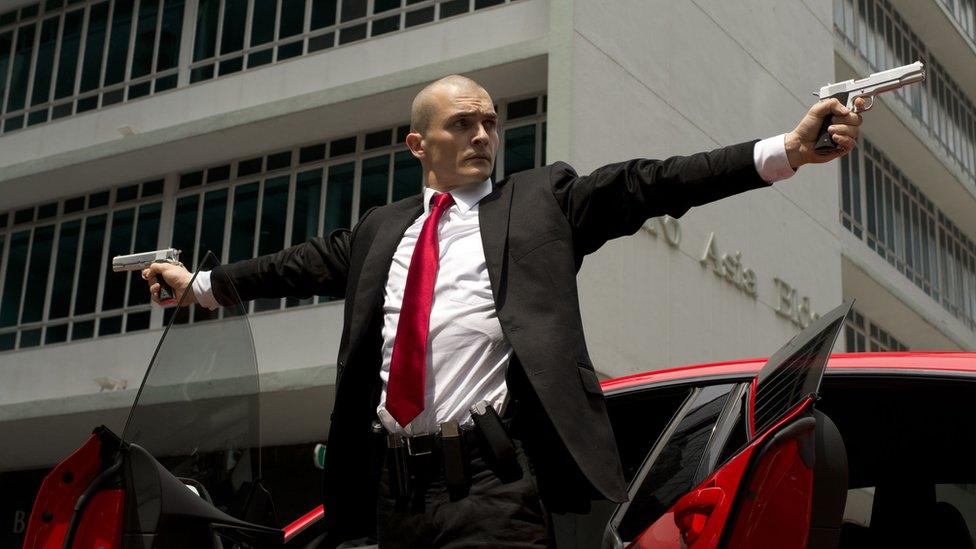
A movie adaptation of the popular Hitman video game series, was filmed in Singapore
But members of Singapore's devoted gaming community, "enjoyed the preview" in the tweets and began to hit back.
"Video games now are supposed to be realistic. I think it's cool that developers have based scenarios and game play on real life events. Don't stop," said a Twitter user in Japan.
"Because you would be looking at a cyber video game account and thinking breaking news events on it were real," said Twitter user Hasmid in Singapore.
Another user commented, external: "I feel sorry for anyone who thinks this is real."